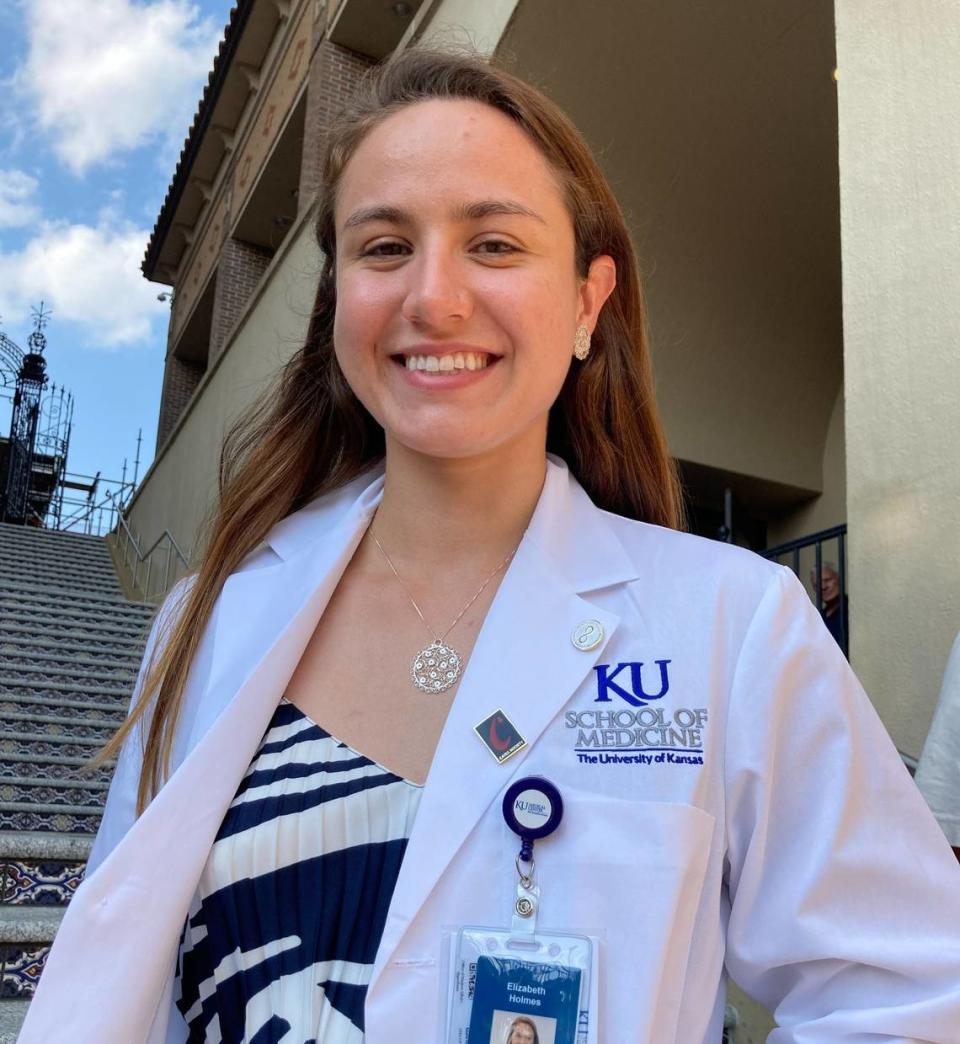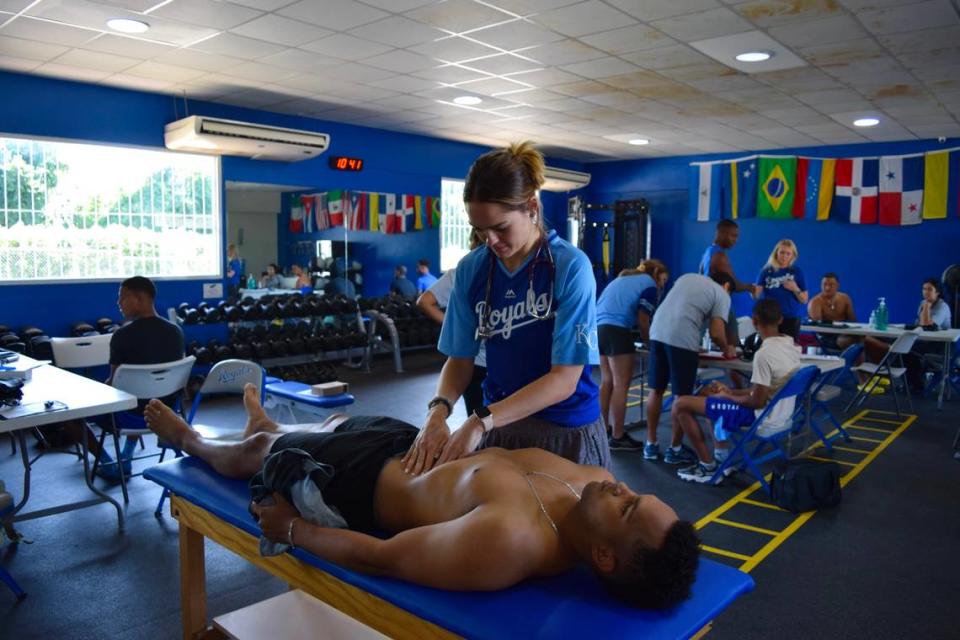Two medical students from KU and Kansas City University will join NFL teams this July
KU medical student Elizabeth Holmes was working in an operating room when a patient grabbed her arm. Out of the all professionals there at the time, the patient told Holmes, “You are never leaving my side.”
This was because, out of all those professionals, Holmes could speak Spanish.
According to Holmes, the patient had arrived the previous night in need of a gallbladder surgery. They hadn’t been seen until the next morning.
“I didn’t get the full story,” Holmes said, “but I don’t think anyone had truly taken the time to get an interpreter.”
When Holmes introduced herself to the patient in Spanish, the response was one of relief: “They were like, ‘No one has told me what’s going on. I am terrified. I’ve never had surgery,’” Holmes recalled.
“I got to be there for them,” Holmes added. “Even after they woke up, I was there to make sure that they knew their surgery went well and that they were able to go home that day.”
It was one of many patient interactions, Holmes said, that opened her eyes to the role that diversity plays in medicine — acknowledging, in part, her Hispanic background and status as a first-generation medical student.

This experience in particular was so pivotal to Holmes that she would write about it later, when she applied to the NFL’s Diversity in Medicine Pipeline Initiative.
Behind the NFL’s Diversity in Medicine initiative
The Diversity in Medicine Pipeline Initiative’s main goal is to “encourage medical students from diverse backgrounds to consider sports medicine careers, and over time, help to diversify NFL club medical staffs,” the NFL’s webpage reads.
It was launched in 2022 as a collaboration between the Professional Football Athletic Trainers Society (PFATS) and the NFL Physicians Society (NFLPS).
In practice, NFL teams welcome a third- or fourth-year medical student to a month-long clinical rotation. That student works directly with team medical staff in orthopedic care, athletic training and more.
“Spending time on the sidelines with us and in the training room — as well as meeting everyone (including) the strength coaches and nutritionists — it’s really an immersion experience,” James Voos, president of the NFLPS told The Star.
This experience, Voos added, is a big step in training a new generation of medical staff who can better reflect the racial and ethnic demographics of NFL athletes themselves.
In the 2023 season, 53.5% of NFL players identified as Black, 10.9% as mixed race, and 2.5% as either Indigenous, Asian, or Hispanic or Latine. Meanwhile, 24.4% of players identified as white. On the medical side, 86% of the NFLPS’ membership and 65% of PFATS’ identified as white.
“Throughout the NFL, there are people of all different races and ethnicities. In seeking out medical students that can have those different races and ethnicities, we really are representatives of the athletes we take care of,” Voos said.
A total of 29 medical students make up the Initiative’s 2024 class, hailing from various medical schools across the country — including all four accredited HBCU medical schools in the U.S.
Holmes, from Overland Park, was accepted into the program last month. In August, she’ll stay local and work with the Kansas City Chiefs.
And on the other side of the state line is another accepted student, right here in Kansas City.
Connecting beyond differences
Jessica Nelson, a fourth-year student from Plymouth, Minnesota, had never been to Kansas City until the first day of orientation at Kansas City University.
Nelson was drawn to KC because she’s “always been Midwest.” It also didn’t hurt that KCU is one of America’s five oldest schools of osteopathic medicine, Nelson’s ideal practice.
She is the Diversity Pipeline Initiative’s only D.O. student, meaning her studies focus on treating a patient entirely, while M.D. students focus more on treating specific symptoms.
“I think I can bring a different perspective,” Nelson said. “Working with your hands and having different tools with the body rather than going to medication and surgery — there’s a lot your body can do on its own, and guiding those things to hopefully get athletes better (also) gets them back to their sport quicker and stronger.”
What Nelson also brings to the table is her experience working with diverse groups of people. Through KCU, she’s worked at clinics in the Dominican Republic and Kenya, treating and learning from the people there.
“There’s a different way you have to communicate with a translator, making sure everything is understood, because people obviously have different traditions and day to day things,” Nelson said.

They’re skills Nelson hopes she can bring to her rotation with the Minnesota Vikings.
“Hopefully, I can connect with patients,” Nelson said. “Maybe through similarities they may not have gotten previously so that they’re confident. Being a female and learning how females can work in sports medicine sort of opens that up.”
Forging ahead on new teams
For Nelson and Holmes, their paths to sports medicine stem from their own experiences as athletes. Nelson, who’s now a part-time yoga instructor, played golf through her undergraduate years at Gustavus Adolphus College. Holmes was a swimmer and played softball, soccer and even basketball — the sport she focused on until the end of high school.
Both women have had their fair share of injuries from those years. Even before they studied medicine formally, medicine had certainly become familiar.
Both women also shared that their upcoming summers with the Vikings and the Chiefs feel something like a homecoming.
And as they bring their own experiences and strengths to the NFL, maybe Nelson and Holmes can help their teams bring home some hardware.

 Yahoo Sports
Yahoo Sports 
